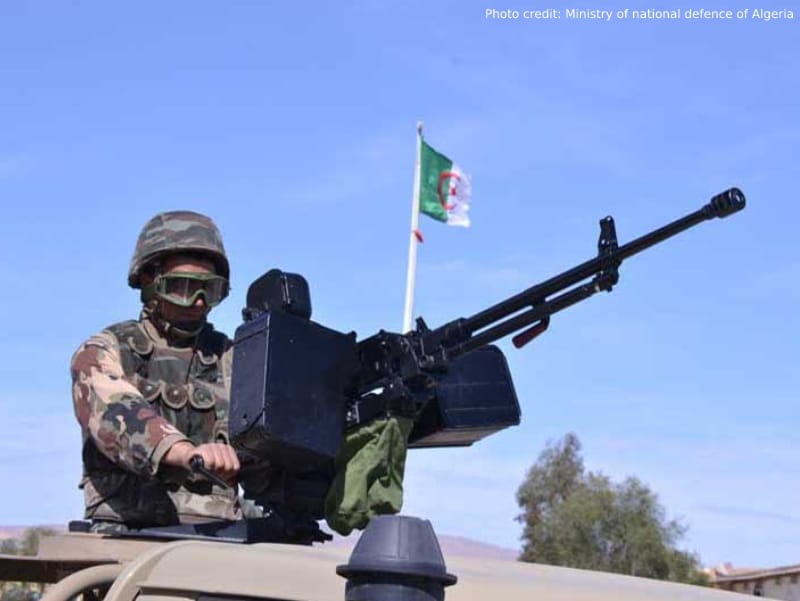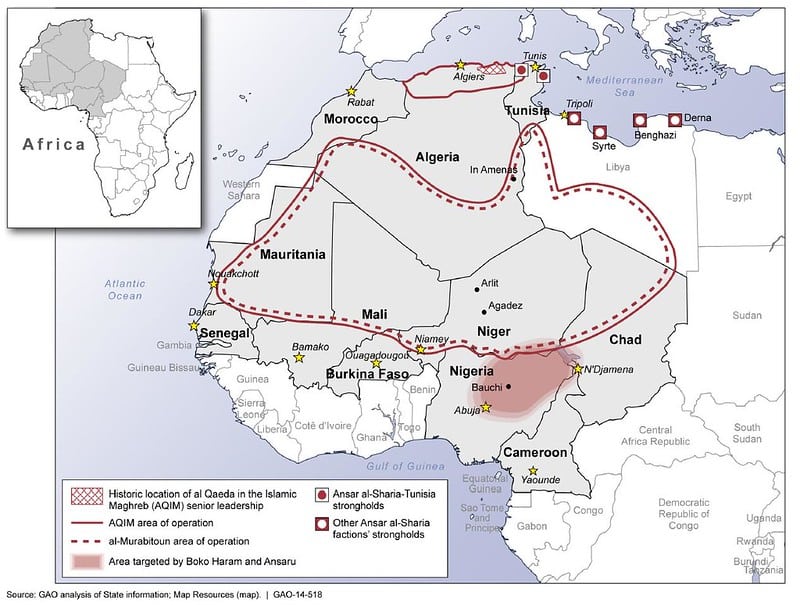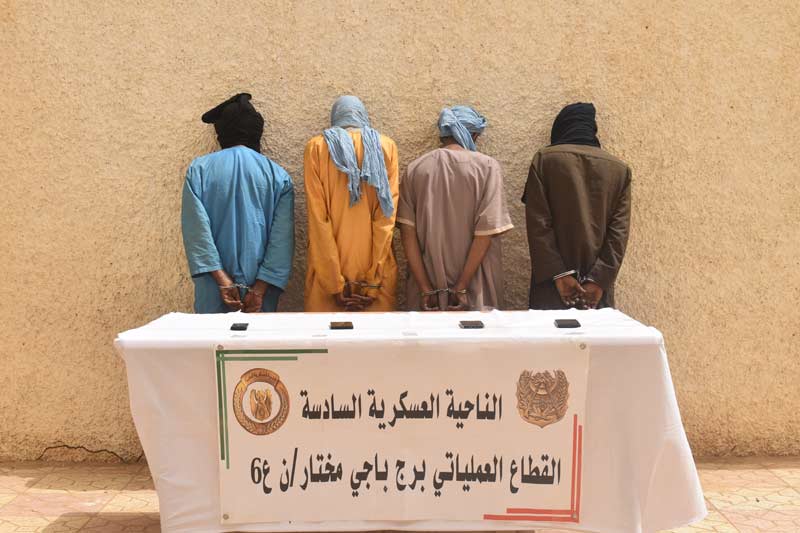
Verzija teksta na srpskom jeziku autora Slađane Subotić dostupna je na sledećem linku: Tekst na srpskom jeziku
For decades, since its independence in 1962, the People's Democratic Republic of Algeria has faced various security challenges, risks and threats. The dynamic environment, territorial and tribal disputes and unstable political situation in the entire region seem to have greatly influenced the fact that, even today, this African country faces numerous problems, not only within but also beyond its borders. Thus, the dispute with Morocco over the Western Sahara territory and support for the Polisario Front, the unstable situation in the Sahel region, as well as Algeria's aspirations to become the dominant power in this part of the world had the most profound impact on the creation of the country's (foreign) politics and security course. In this regard, in addition to all the problems mentioned above, the special focus of this North African country has been placed on combating terrorism, which seems to have been the main actuator of the government's military procurement policy.
From a historical point of view, it can be said that the struggle for independence from France, unstable relations, conflicts, the Sand War with Morocco, civil wars during the last decade of the 20th century and the current terroristic threats have strongly encouraged Algeria to form and, to this day, continuously improve its own security forces. Parallel to that process, the Algerian People's National Army (ANP) strengthened its role in the country's politics and was the pillar not only of the coups in 1965 and 1991 but also of Abdelaziz Bouteflika’s assumption of authority in 1999. Two decades later, it was confirmed that the army remained at the centre of power when Bouteflika resigned under pressure from the Algerian army on April 2, 2019, after mass demonstrations.
Such position of the ANP and the expanding issue of terrorism caused the military budget of this country to be one of the largest in the MENA region in the past few years, amounting to the sum between 9.5 and 10.5 billion dollars (roughly 5.5 to 6.6 per cent of the GDP). Accordingly, nowadays, Algeria has well-equipped armed forces with about 130.000 soldiers, which together with the Algerian Republican Guard, the Gendarmerie Nationale, the Directorate General for National Security and the Ministry of the Interior represent the backbone of the fight against terrorism.
On the other hand, when it comes to legislative policy, a turning point in the relations between Algerian authorities and militant groups (including the military wings of certain political organizations, such as the Islamic Salvation Front) was the adoption of the 1999 Civil Concord Law, a law on amnesty and social harmony (in French: Loi sur la concorde civile). Even though this Law caused widespread criticism, the authorities enabled the social integration and amnesty of armed Islamists who committed minor crimes and misdemeanours, that is, they were not perpetrators of crimes such as rape, massacres or public attacks with explosives. Although disputed, the Law was expanded through the Charter for Peace and National Reconciliation in September 2004, but certain groups, such as the Salafist Group for Preaching and Combat, did not accept the state's offer to lay down their arms and cease terrorist activities.

According to publicly available sources, around 240 attacks were carried out in Algeria during the past decade. Al-Qaeda in the Islamic Maghreb, a successor of the Salafist Group for Preaching and Combat, also known by the French acronym GSPC (Groupe Salafiste pour la Prédication et le Combat), took responsibility for most of them. Namely, this Salafist group was formed during the 1990s Islamist uprisings and civil war, after the issue of terrorism in this area expanded due to the unstable political situation and dissatisfaction of the citizens.
However, shortly after the end of the Algerian Civil War in 2002, the GSPC leadership changed, resulting in this group merging with Al-Qaeda. Despite this, they kept using their existing name until 2007, when the GSPC officially changed its title to Al-Qaeda in the Islamic Maghreb (AQIM). Over time, the group evolved into an organisation that today, according to some sources, has more than 4,000 fighters and represents the gravest security threat to Algeria, particularly its southern parts. In addition to AQIM, members of the Islamic State of Iraq and the Levant, that is, the Islamic State - Province of Algeria, which has its roots in the local Islamist group Wilayah al-Jazair, are extremely active in this North African country.
The long-standing struggle of the Algerian authorities against the soldiers of the aforementioned organisations, as well as other terrorist groups, such as the Movement for Oneness and Jihad in West Africa and the Those Who Sign in Blood Brigade (Al-Mua'qi'oon Biddam Brigade), enabled them to acquire invaluable experience in the combat against terrorism. The process of procurement and equipping the armed forces with drones, surveillance radars and night vision equipment was also carried out, resulting in the overall successful elimination of terrorist groups operating in the north of the country. Nevertheless, although outstanding results have been achieved in the fight against militants, which has been confirmed by numerous regional and global recognition, it seems that new challenges have been set before the Algerian Security Forces in the meantime.
Namely, the unstable security state of affairs in the Sahel region enabled AQIM supporters to find refuge right in this area, that is, in the southern parts of the country near the borders, after suffering defeat at the hands of the Algerian army. On the other hand, the civil war in Libya secured a significant weapons supply for logistics, seeing that terrorist groups soon began to seize various types of weapons and military equipment from Libya. Because of this, the focus of the Algerian Security Forces lately seems to be aimed primarily at strengthening border control mechanisms and further suppressing militant groups and organisations in the unsettled areas of the country, while adhering to the principle of non-negotiation if a ransom or exchange of prisoners for hostages is requested.
Accordingly, additional forces have been deployed to the field, aerial surveillance of the border zone has been intensified, and checkpoints have been set up on roads. These measures resulted in a notable reduction in terrorist activities, an increased number of militant arrests, the destruction of hideouts and the seizure of weapons, which harmed the capacities and resources of active groups and terrorist organisations. In addition to the abovementioned mechanisms, the Algerian government closely monitors arriving and departing flights, relying heavily on national strategies and passenger databases such as API (Advance Passenger Information) and PNR (Passenger Name Record). Since 2019, the Passenger Information Unit has been established, operating under the head of the Directorate General of Customs, thanks to which PIU members can access and use the INTERPOL database at entry points into the country.

The developed mechanisms and acquired experience contributed to Algeria taking the leading role in AFRIPOL (The African Union Mechanism for Police Cooperation), with the aim of improving African police and preventing crime and terrorism. In the same year the Passenger Information Unit was established, Algeria also hosted the AFRIPOL General Assembly and the annual meeting of African Union representatives on Common Vulnerabilities and Exposures (CVE) at the African Centre for the Study and Research on Terrorism.
Cooperation with other countries in the region is also crucial, just like the timely exchange of intelligence data and information, which, according to previous statements by the Ministry of National Defence of Algeria, has resulted in various actions and the elimination of many terrorist groups members, as well as the seizure of a large amount of weapons, equipment, ammunition and narcotics. Thus, for example, the good relations between Algeria and Tunisia resulted in a successful joint attack of the ground and air forces on ISIS positions and camps in the border area. At the same time, Algeria is also strengthening its diplomatic engagement in the field of promoting regional peace and security by remaining the chair country of the Monitoring Committee on the implementation of the peace agreement in Mali, supporting the UN political process in Libya and providing assistance to neighbouring countries so as to prevent cross-border attacks by Islamic militant groups.
However, there are disagreements among neighbours in the region, especially when it comes to the issue of the Western Sahara territory and Algerian relations with the Kingdom of Morocco. This dispute dates back to their first conflict during the 1963 Sand War, and has been active to this day, when Morocco is accusing Algeria of directly supporting the Polisario Front. Algeria, on the other hand, is pointing the finger at Morocco for supporting the Movement for the Self-Determination of Kabylie (a separatist group in the Algerian region of Kabylia) and the Islamist Rachad Movement. Algeria severed diplomatic relations with Morocco in August 2021 over accusations of hostile acts, further instigating mounting tensions. This made cooperation virtually impossible and will certainly have a negative impact on the already unstable security state of affairs in the broader area of North Africa.
Translated and proofread by: Milica Milosavljevic
Author: Sladjana Subotic


